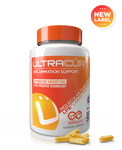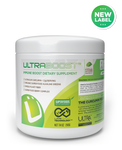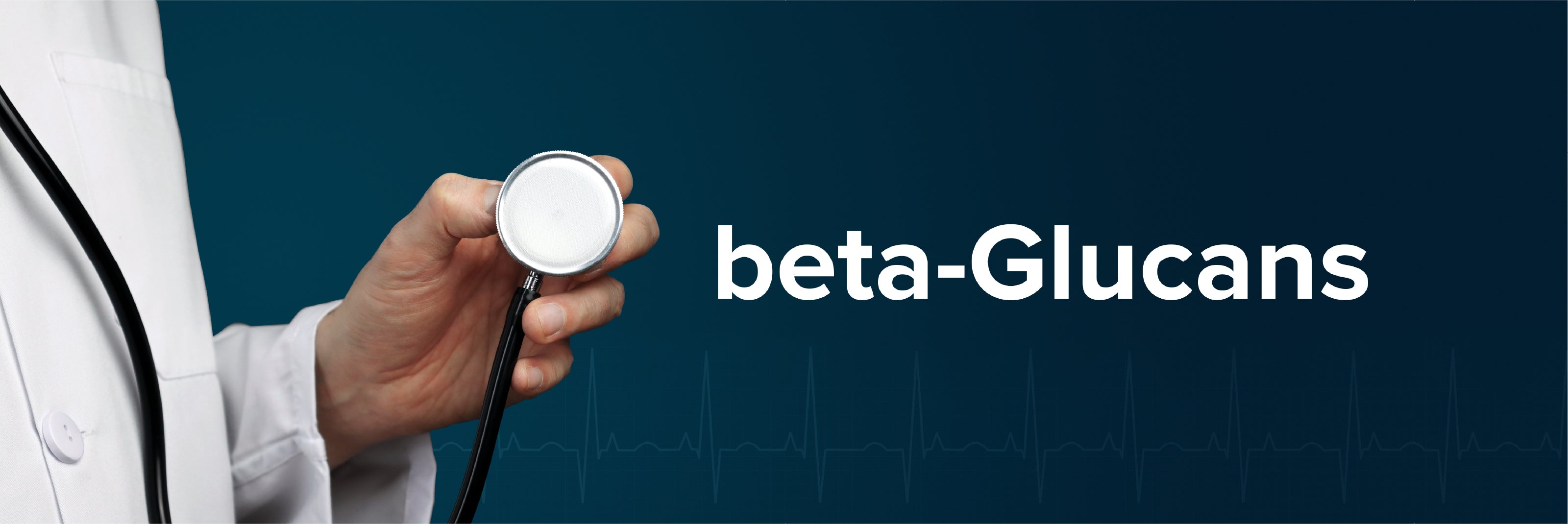What is Beta Glucan?
Beta glucan is a special type of fiber that offers many health benefits.
Beta glucan has been studied extensively for its benefits on the immune system, heart health and cholesterol levels, gut health, brain health, blood sugar levels, and even cancer.
You might wonder how to boost your intake of beta glucans, so you can reap its benefits. Read on to find out.
Ancient Perspectives on Beta Glucan
People in prehistoric times knew that some mushrooms had healing power. A manuscript found in India written about 5,000 years ago, discusses the medicinal effects of mushrooms.
Japanese legend also depicts monkeys without cancer or any other disease, after they’d feasted on the mushroom Lentinula edodes.

Types of Fiber – and Where Beta Glucan Fits In
Fundamentally, there are two types of fiber – soluble and insoluble.
Soluble fiber dissolves in water and forms a thick, gel-like substance. On the contrary, insoluble fiber doesn’t dissolve. Instead it absorbs liquid as it travels through your digestive tract.
Beta glucan is a specific form of soluble fiber. It is found in the cell walls of specific plants as well as some yeasts, bacteria, fungi, and algae. You can also get beta glucan in supplement form.

How Beta Glucan Works
As with other soluble fibers, beta glucan slows the movement of food as it travels through your intestines. This lengthens digestion time and makes you feel full longer.
Beta glucan also slows the absorption of sugar into your bloodstream, which helps stabilize blood sugar levels and improve blood sugar metabolism.
And beta glucans reduce the absorption of cholesterol to contribute to healthy cholesterol levels to support heart health.
In addition it boasts benefits for your heart and brain.

Where to Get Beta Glucan in Food
If you eat a high fiber diet or certain types of mushrooms, you may already get beta glucans in your food. However, there’s some evidence that most people fall short of the recommended fiber allowance.
Good food sources of beta glucan include:
- Yeast
- Mushrooms
- Seaweed
- Barley/oats/rye
- Rice
Beta glucan is also found in some bacteria and fungi, including Saccharomyces cerevisiae, which is used in making nutritional yeast, wine, beer, and some baked goods. Note: This does not make alcohol or baked goods your preferred sources of beta glucan.

Health Benefits of Beta Glucan
Health benefits of beta-glucans are supported by a growing body of research. Here are six known health benefits:
1. Immune system boost.
Several studies have shown that beta-glucans enhance immune response and boost the activity of white blood cells... promoting the body’s ability to fight illness, infections, and diseases.
Both animal and lab studies have shown that beta glucan could help activate immune cells and protect from infection.[1]
Beta glucan also increases the activity of certain immune cells, including macrophages, neutrophils, and monocytes. The immune system plays an active role in all phases of carcinogenesis, so a healthy immune system serves you in ways other than just protecting you from infectious diseases.[2]
In fact, other studies have zeroed in on beta glucan’s role in reducing inflammatory (and tumor) markers including tumor necrosis factor (TNF), interleukin-1 beta (IL-1β), and interleukin-6.[3]
2. Boosts heart health and lowers cholesterol levels.
Studies show that beta glucan may promote heart health and protect against heart disease. So much so, that in 1997 the FDA approved a health claim stating that beta glucan from oats, oat bran, and oat flour might reduce the risk of heart disease.[4]
This is because beta-glucans may help slash total cholesterol levels, as well as low-density lipoprotein (LDL) cholesterol levels, which are considered risk factors for heart disease.[5]
One study showed that consuming 3 grams of beta glucan per day for 8 weeks lowered LDL levels by 15% and total cholesterol by nearly 9%.[6]
What’s more, beta glucan is rich in antioxidants, which protect your health by neutralizing free radicals, controlling inflammation, and protecting against chronic disease.[7]
3. Regulates blood sugar levels and mitigates metabolic diseases.[14]
Studies reveal that beta-glucans may slow absorption of carbohydrates, leading to a more gradual rise in post-prandial blood sugar levels and improved insulin sensitivity.
A review of four studies showed that taking 2.5 to 3.5 grams of beta glucan daily for 3 to 8 weeks can reduce blood sugar levels and improve ongoing blood sugar regulation in people with type 2 diabetes.[8]
Taking beta glucan with high-carb meals may help lower blood sugar and insulin levels after eating.[9]
A different large review found that consuming beta glucan could lower your risk of developing type 2 diabetes.[10]
4. Promotes gut health.
Several studies show that beta-glucans promote the growth of beneficial bacteria in the gut, leading to a healthier gut microbiome, which generally translates to better overall health and wellness.
A study published in the European Journal of Nutrition found that beta-glucans from barley improved gut health by boosting levels of bifidobacteria and lactobacilli, two kinds of beneficial gut bacteria.[11]
Another study, this one in the British Journal of Nutrition, found that oats improved gut health by increasing bifidobacterial as well as by reducing levels of harmful bacteria in the gut.[12]
These two studies were performed on animals, so results may vary in humans.
5. May prevent cancer.
A study compared 11 commonly used immunomodulators (a substance capable of interacting with the immune system to up-regulate or down-regulate immune response).
It showed that beta glucan was consistently the most active molecule. The data was confirmed using a Lewis lung cancer model, where only beta glucan and resveratrol lowered the number of metastases.[13]
According to PubMed, beta glucan holds the best position for immunomodulators, with over 20,000 published studies.
6. Protects the brain.
A 2020 study provides evidence that beta glucan improves cognition and brain function… with benefits all along the gut-brain axis.[15]
A 2022 study showed that not just one, but three types of beta glucans enhanced memory. This study may shed light on how to choose the right beta glucan as a supplement for protecting your brain and preventing cognitive deficit.[16]
Previous studies have shown that dietary fiber consumption is positively correlated with cognition in middle-aged and elderly people.[17]
Significant evidence shows that the gut microbiota plays a crucial role in numerous neurological disorders. The microbiota “talk to” the brain in various ways, including via the immune system and the vagus and enteric nervous system.

Should You Take a Beta Glucan Supplement?
According to the FDA, 3 grams of beta glucan per day helps reduce cholesterol levels.
You may be able to meet this with diet alone. However, if you’re skipping grains to reduce carbs in your diet or don't consume enough fiber, you may want to opt for a beta glucan supplement.
Bear in mind that not all supplements are created equally. Choose one made by reputable companies that undergo third-party testing to ensure safety and quality. Yeast-derived beta glucan is considered a premier source of beta glucan.
Consider our new beta glucan supplement called PureMune, and watch for our upcoming Onco-Adjunct™ Pathway 4™ product, which will contain beta glucan.

The Surprising Key to Living Your Life Dreams -- Your Mouth?
Your mouth talks. It talks to your gut, which talks to your brain. Are you giving it the right inputs for top health, wellbeing, and a life centered on living out your dreams?
For more health info, watch the video featuring dentist-turned-anti-aging specialist on YouTube now. Prefer audio only? Listen on Spotify now.




